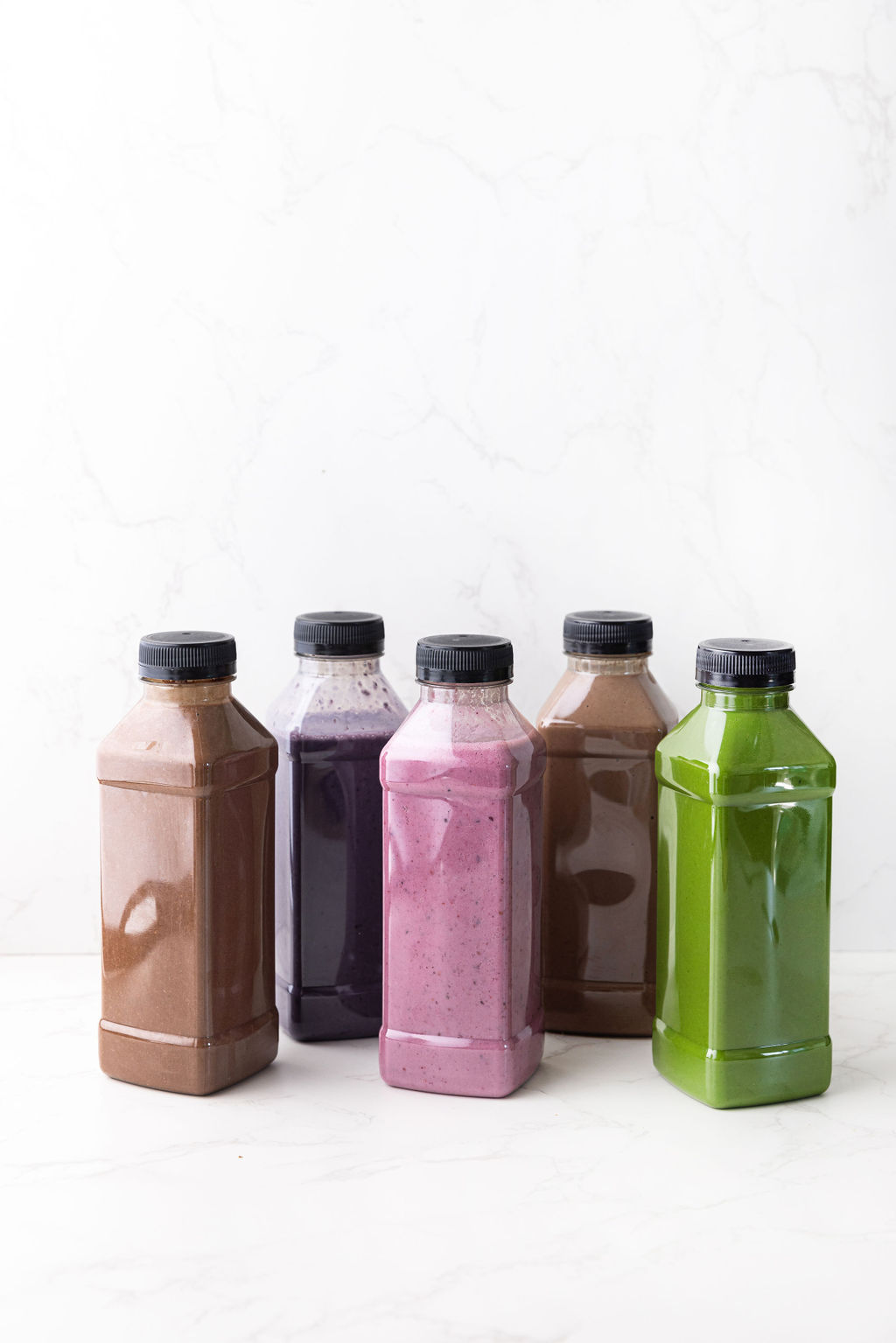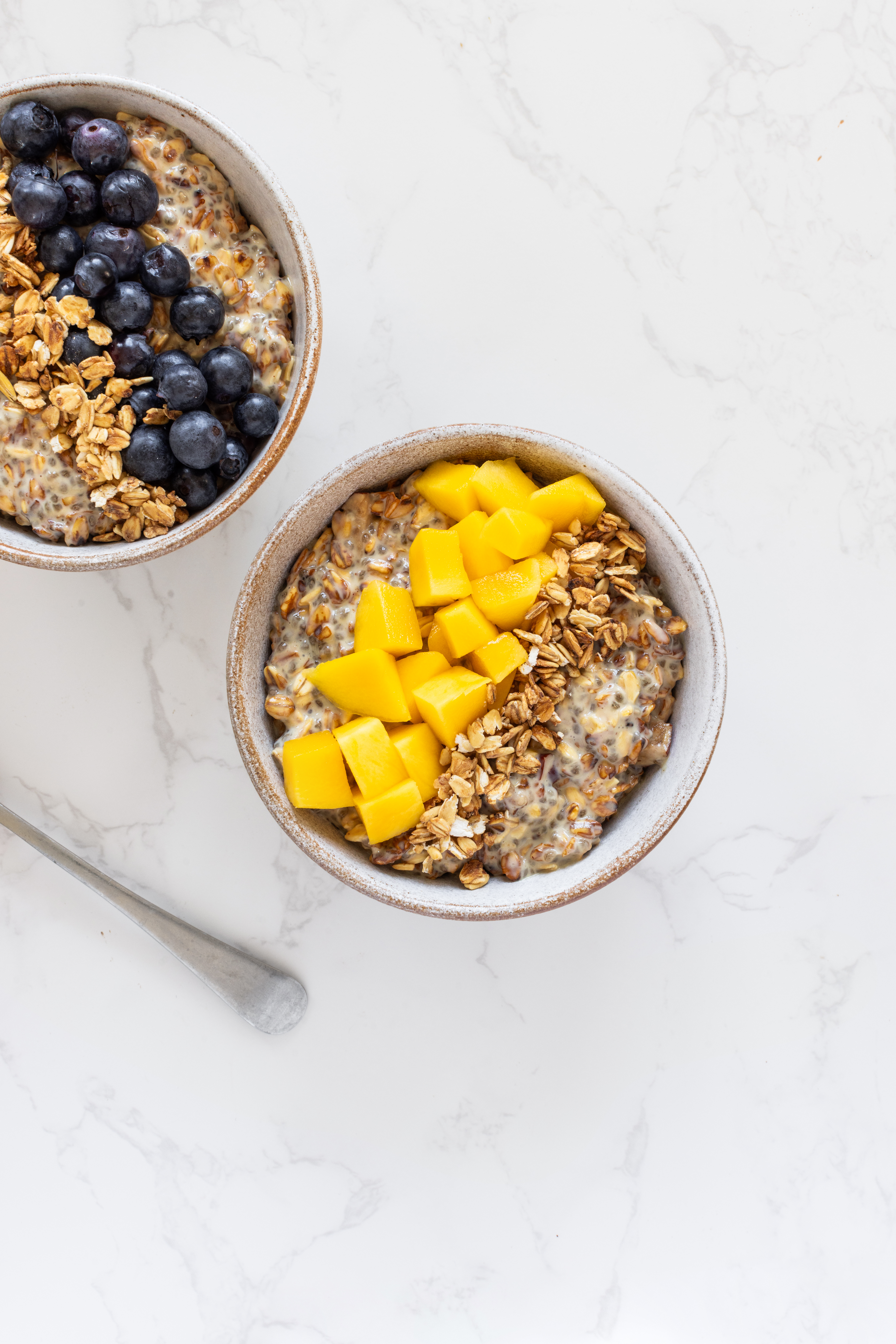- Linkedin Share
- Twitter Tweet
- Email Share
- Copy link Copy link Copied to clipboard
Prebiotic and probiotic drinks have carved out a space in the functional beverage market — especially among active individuals and performance-focused consumers. From sodas to tonics, these drinks claim to support gut health in a convenient, enjoyable format. But how effective are they, and what should you look for if you’re considering adding one to your routine? Frances Smith, our Head of Nutrition, helps separate the hype from the health benefits.
What Are Probiotic and Prebiotic Drinks?
Probiotic drinks contain live microorganisms — typically specific strains of bacteria or yeast — that are beneficial for human health, especially the digestive system. Common examples include kombucha, kefir and same yogurt-based drinks. These are often fermented, a process that naturally cultivates beneficial bacteria.
On the other hand, prebiotic drinks don’t contain live bacteria. Instead, they include dietary fibres or compounds (like inulin or resistant starch) that serve as food for the good bacteria already living in your gut. By nourishing your existing microbiota, prebiotics help maintain a balanced and diverse gut ecosystem.
The Gut Microbiome: Why It Matters
Your gut microbiome is a complex community of trillions of microorganisms living in your digestive tract. These microbes are essential for digesting food, synthesising vitamins, regulating the immune system and even influencing mood and brain health. An imbalanced gut microbiome (loss of beneficial bacteria or reduction in diversity) has been linked to a wide range of health issues, including inflammatory bowel disease, obesity, type 2 diabetes and anxiety.
Improving the composition and diversity of your gut bacteria is becoming increasingly recognised as essential for good health, and this is where probiotic and prebiotic drinks claim to offer benefits.
Do Probiotic Drinks Help?
Scientific studies support the idea that some strains of probiotics can be beneficial, especially for people experiencing specific digestive issues such as irritable bowel syndrome (IBS), diarrhoea or bloating. For instance, Lactobacillus and Bifidobacterium species are among the most well-studied strains and are often found in probiotic drinks.
However, not all probiotics are created equal. The benefits of a probiotic drink depend heavily on the strain, dosage and the microbes’ ability to survive both in the drink itself and the acidic environment of your stomach. Many commercial products may fall short, containing insufficient quantities of live bacteria or lacking studies to prove their impact, leaving us uncertain about their actual benefits.
Additionally, individual response to probiotics can vary. While some people may notice improved digestion, others might experience no effect at all. Still, incorporating high-quality probiotic drinks into your routine can be a simple way to support microbial diversity, particularly if your diet is otherwise low in fermented foods.
The Role of Prebiotic Drinks
Prebiotic beverages work more indirectly by feeding the good bacteria already present in your gut. These drinks often contain fibres like chicory root, acacia fibre or fructo-oligosaccharides (FOS), which resist digestion in the upper gut and ferment in the colon, promoting the growth of beneficial microbes.
Studies show that prebiotics can enhance calcium absorption, improve regularity and increase the population of anti-inflammatory bacteria in the gut. While they don’t deliver live bacteria, they help set the stage for a healthier microbiome over time.
Prebiotics are the ideal fuel for your beneficial gut bacteria, helping your microbiome thrive and, in turn, supporting better digestion, brain function, and immune health. Studies show that prebiotics can enhance calcium absorption, improve regularity, and even lower harmful blood lipid levels. While they don’t provide live bacteria, they help create the perfect environment for a healthier, more resilient microbiome over time.
What to Look For
To get real value from pre/probiotic drinks, look for:
- Research using their own product
- Documented strains (e.g., Lactobacillus or Bifidobacterium)
- Effective dosage (ideally 5–10 billion Colony-Forming Units (CFU) per serving for probiotics)
- Evidence-based fibres (like inulin, FOS or acacia)
- Artificial sweeteners such as sucralose, saccharin, erythritol or maltitol
- Minimal sugar and additives
Prebiotic and probiotic drinks aren’t a daily necessity, but when well-formulated, they could offer a smart, functional way to support gut health. These beverages aren’t meant to replace whole-food nutrition or foundational fibre intake, but they could provide meaningful benefits and offer a healthier alternative to other high sugar carbonated drinks. Learn what other gut-friendly foods you can incorporate alongside these drinks with tips from our expert nutrition team.



